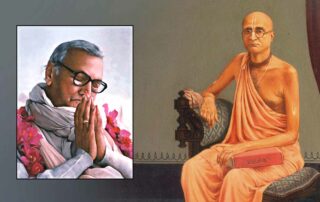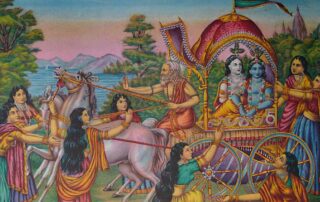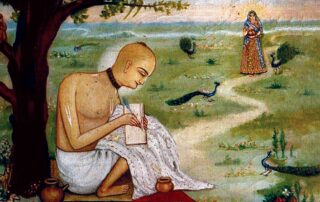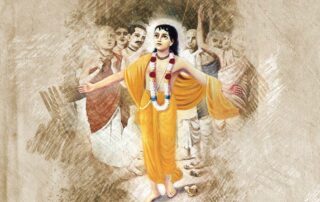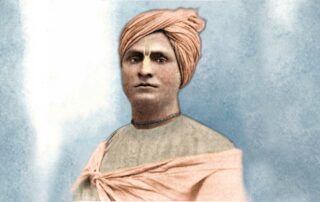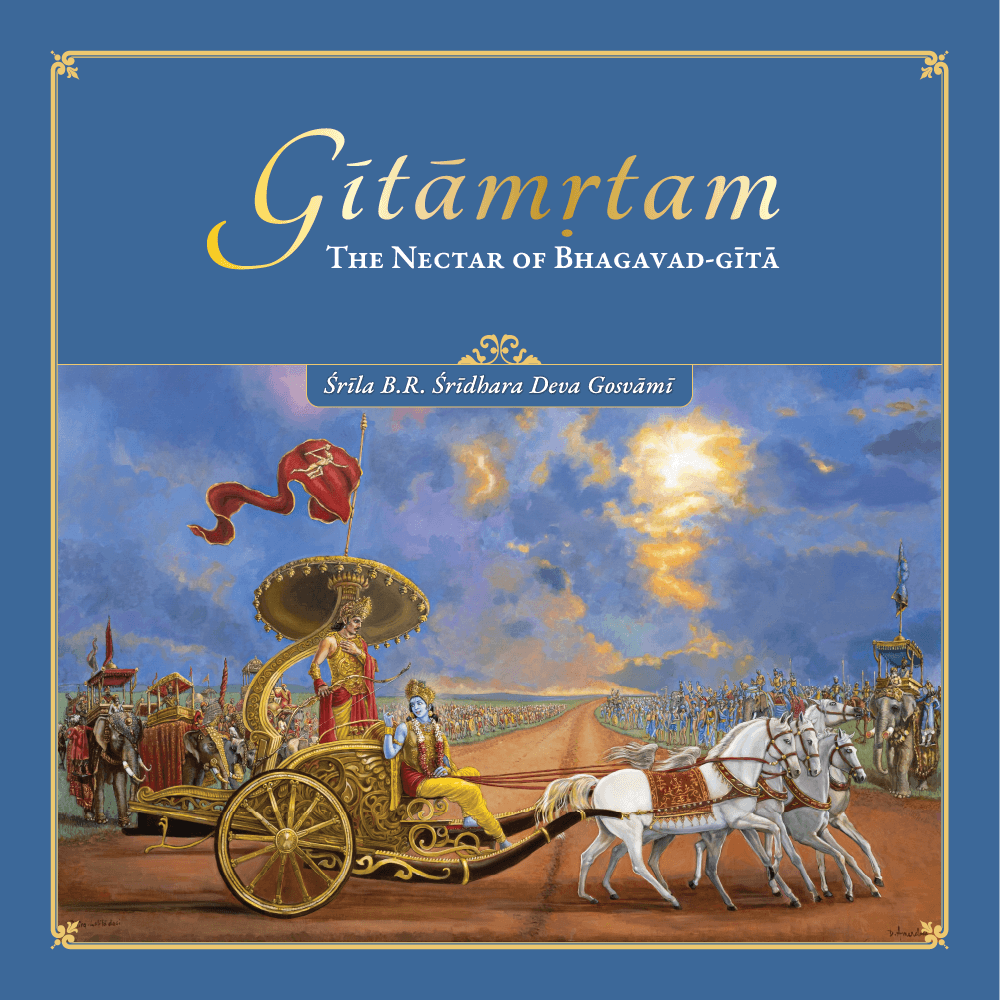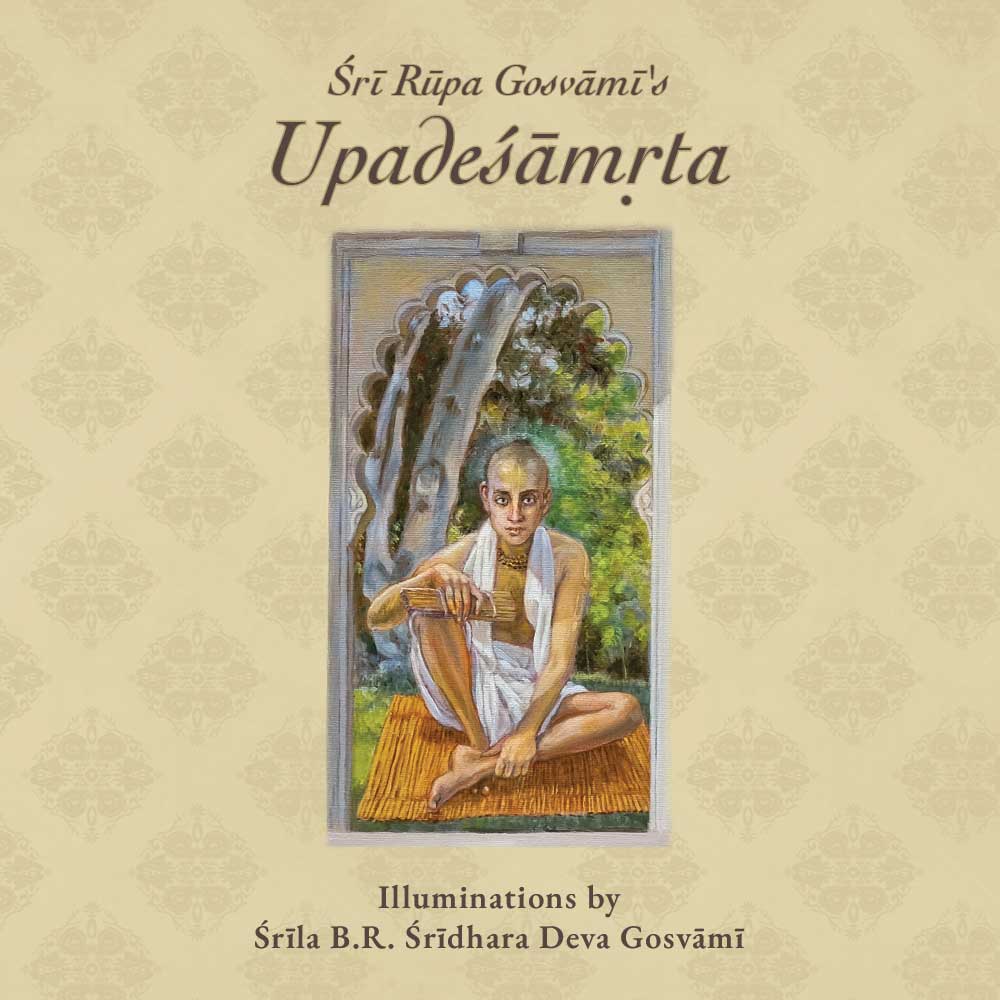Articles by Śrīla Bhakti Rakṣaka Śrīdhara Deva Gosvāmī
Śiva-tattva – the Position of Lord Śiva
On the auspicious occasion of Mahā-Śivarātri, we present the following article which has been adapted from various talks that Śrīla B.R. Śrīdhara Deva Gosvāmī Mahārāja gave during the 1980s concerning śīva-tattva.
Śrīla Sarasvatī Gosvāmyāṣṭakam
This Sanskrit prayer was composed by Śrīla Śrīdhara Deva Gosvāmī Mahārāja in 1949 and was first published in Śrī Gauḍīya Patrikā (Vol.1, Issue 8) and later in the Hindi magazine, Bhāgavat Patrikā (Vol.1, issue 6) in 1955. This rare composition has been translated into English for the first time.
Mā Muñca Pañca-daśakam (Fifteen Verses Praying Not to Be Abandoned)
The following Sanskrit prayer, Mā Muñca Pañca-daśakam, was composed by Śrīla Śrīdhara Deva Gosvāmī Mahārāja in 1967 and first published in Gauḍīya Darśana magazine, Vol. 12, Issue 6. In this touching and humble appeal, Śrīla Śrīdhara Mahārāja begs Kṛṣṇa, who is an ocean of unlimited mercy, not to abandon him.
A Rūpānuga’s Constant Meditation Concerning Śrī Ratha Yātrā
This article, ‘Śrī Ratha Yātrāya Śrī Rūpānugānucintana,’ by Śrīla Śrīdhara Mahārāja, was first published in Śrī Gauḍīya Darśana magazine, Vol. 13, issue 1 in August 1969 the name of Śrī Kṛṣṇa Govinda Dāsa Adhikārī Bhakti-kovinda, and was written in response to certain maṭhas performing Ratha Yātrā in the dhāma.
Ten Prayers to the Foot-Dust of Śrīmad Rūpa Gosvāmī (Śrīmad Rūpa Pada Rajaḥ Prārthanā Daśakam)
With the forthcoming observance of Śrīla Rūpa Gosvāmi’s disappearance, we present ‘Śrīmad Rūpa Pada Rajaḥ Prārthanā Daśakam’ (Ten Prayers to the Foot-Dust of Śrīmad Rūpa Gosvāmī), a Sanskrit composition by Śrīla Śrīdhara Deva Gosvāmī Mahārāja. first published in Śrī Gauḍīya Darśana magazine, Vol.11, Issue 1 in 1965.
‘The Best of Thieves’ – An Illumination
Śrīla B.R. Śrīdhara Deva Gosvāmī comments upon a Sanskrit prayer attributed to Śrī Bilvamaṅgala Ṭhākura entitled Caurāgragaṇya-Puruṣāṣṭakam (Eight Prayers to that Personality Who is the Best of Thieves). In his explanation, Śrīla Śrīdhara Mahārāja explains that Kṛṣṇa’s inherent nature as a thief is in the jīva’s best interests.
Introduction to Śrī Bhakti-rasāmṛta-sindhu
In this introduction to the Śrī Bhakti-rasāmṛta-sindhu written in 1947, Śrīla Śrīdhara Mahārāja gives a brief explanation of the importance of Rūpa Gosvāmī’s magnum-opus, how it is the king amongst all other rasa-śāstra, Śrī Jivā Gosvāmī’s commentary on it, as well as the unique features of this particular publication of Bhakti-rasāmṛta-sindhu. This was translated from Bengali by Swami B.V. Giri.
Introduction to the Bhagavad-gītā
This introduction to the Bhagavad-gītā by Śrīla Śrīdhara Deva Gosvāmī was written for the Bengali edition of the Gītā published by Śrī Caitanya Sārasvata Maṭha in 1961. Śrīla Śrīdhara Mahārāja expounds the glories of the Gītā and explains how śaraṇāgatī (surrender) is its ultimate message. This article was translated into English by Sanātana Dāsa.
Śrī Gaura-hari Kusuma Stavāṣṭākam
On the occasion of the upcoming Gaura Pūrṇimā festival, we present this Sanskrit song, ‘Śrī-Gaura-hari Kusuma Stavāṣṭākam’ (‘Eight flower-like Prayers to Śrī Gaura-hari’) which was composed by Śrīla Śrīdhara Deva Gosvāmī Mahārāja and originally published in Śrī Gauḍīya Darśana magazine, Volume 8, Issue 9 in 1963.
Who is Qualified to Succeed the Ācārya?
This important article from 1939, published in the Gauḍīya magazine after the disappearance of Sarasvatī Ṭhākura, consists of a series of questions and answers between a householder disciple of Sarasvatī Ṭhākura and Śrīla Śrīdhara Mahārāja concerning guru-godbrother relations, succession, and guru-tattva. In the original Bengali, some sections of the article were given emphasis with bold text and we have maintained the same formatting in the English version. This article was translated into English by Swami B.V. Giri and Sanātana Dāsa. (Note: The title ‘Prabhupāda’ in this article refers to Śrīla Bhaktisiddhānta Sarasvatī Ṭhākura)




